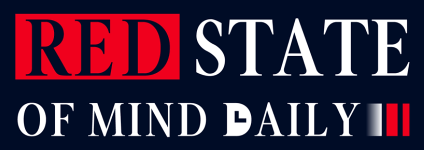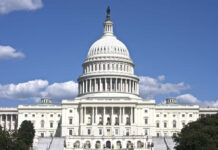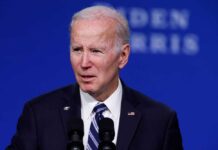
As the United States draws closer to another government shutdown in less than two weeks, the Republican House leader and Democratic Senate leader have agreed to a spending deal that will help avert the shutdown.
The numbers agreed to by House Speaker Mike Johnson (R-LA) and Senate Majority Leader Chuck Schumer (D-NY) include $886 billion for defense spending for the fiscal year 2024 and $704 billion in non-defense spending. This adds up to $1.59 trillion for the fiscal year 2924.
Johnson unveiled this plan in a letter to House Republicans, revealing that the $1.59 figure is in line with the “statutory levels” in the debt ceiling bill the House passed in June last year.
Pointing to concessions made in the deal, Johnson’s letter read, “The agreement today achieves key modifications to the June framework that will secure more than $16 billion in additional spending cuts to offset the discretionary spending levels…The result is real savings to American taxpayers and real reductions in the federal bureaucracy.”
Johnson noted that the final decision on the spending levels “will not satisfy everyone,” as it does not cut as much spending as Republicans would like. However, he added that the deal champions conservative ideals more than previous times.
The development comes as Congress faces two deadlines when it comes to government funding – one on Jan. 19 and another on Feb. 2. With a framework set, the next step for lawmakers in the Senate and House Appropriations Committees is continued negotiation and completion of the 12 annual appropriations bills.
The agreement does not go down well with some conservative voices, including Rep. Chip Roy (R-TX), who said on X that “a $1659 topline in spending is terrible & gives away the leverage accomplished in the (already not great) caps deal.”
We’ll wait to see if we get meaningful policy riders… but 1) the [National Defense Authorization Act] was not a good preview, & 2) as usual, we keep spending more money we don’t have,” he added.
A $1659 topline in spending is terrible & gives away the leverage accomplished in the (already not great) caps deal. We’ll wait to see if we get meaningful policy riders… but 1) the NDAA was not a good preview, & 2) as usual, we keep spending more money we don’t have.
— Chip Roy (@chiproytx) January 7, 2024
The conservative House Freedom Caucus also disagreed with the spending agreement, pointing out that the real spending level goes up to $1.685 trillion.
It’s even worse than we thought.
Don’t believe the spin. Once you break through typical Washington math, the true total programmatic spending level is $1.658 trillion — not $1.59 trillion.
This is total failure. https://t.co/QBok5lpa6E
— House Freedom Caucus (@freedomcaucus) January 7, 2024
Senate Minority Leader Mitch McConnell (R-KY), however, has voiced support for the deal, writing, “I’m encouraged that the Speaker and Democratic Leaders have identified a path toward completing FY 2024 appropriations. America faces serious national security challenges, and Congress must act quickly to deliver the full-year resources this moment requires.”
I’m encouraged that the Speaker and Democratic Leaders have identified a path toward completing FY 2024 appropriations. America faces serious national security challenges, and Congress must act quickly to deliver the full-year resources this moment requires.
— Leader McConnell (@LeaderMcConnell) January 7, 2024
Any deal concluded on would still need to pass through the Republican-controlled House and the Democrat-controlled Senate onto President Joe Biden’s desk. Biden has already voiced support for the framework Johnson and Schumer agreed to, saying it “moves us one step closer to preventing a needless government shutdown and protecting important national priorities.”




























